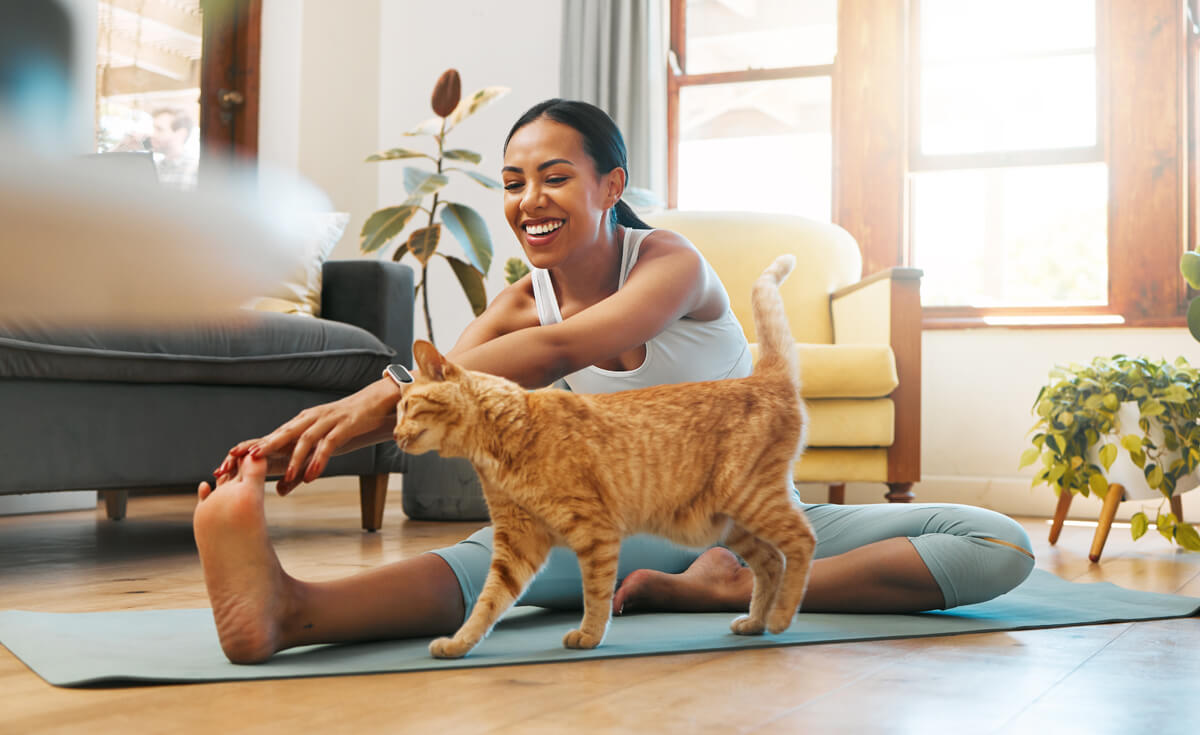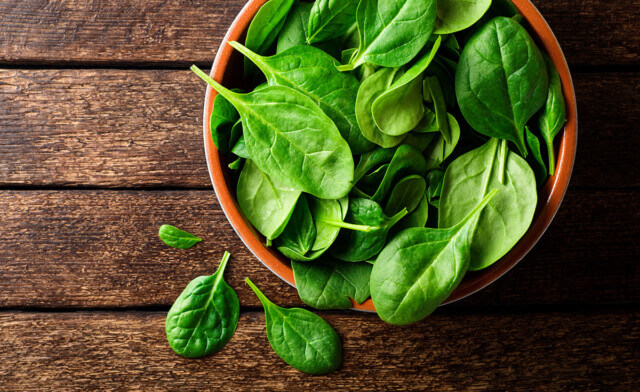The Benefits of Glucosamine for Cats
Is your feline friend showing signs of joint pain or discomfort? As responsible pet parents, we all want to make sure our cats enjoy a life of comfort and vitality. But many cats suffer from joint-related issues, especially as they age.
In this blog post, we’ll take a look at glucosamine for cats and explain how it can benefit your furry friend’s joint health. Keep reading to discover how glucosamine for cats offers pain relief, promotes joint mobility, and even helps improve your kitty’s urinary health.

Understanding Glucosamine for Cats
Glucosamine is a nutritional supplement that plays a crucial role in promoting healthy joints and reducing common health issues in our feline companions.
In this section, we’ll explain more about how this joint supplement works. We’ll also provide a brief overview of common health issues in cats, so you can understand which conditions affect cats as they age and how glucosamine can benefit their overall wellbeing.
Definition and Function
Glucosamine is an amino sugar that’s naturally present in the body, especially in the fluid around the joints. In supplement form, it assists in forming crucial components of joint cartilage, tendons, ligaments, and lubricating fluids. These help maintain healthy joint function and mobility in cats.
Although it’s typically seen as a product aimed at senior cats, glucosamine can also benefit younger kitties by proactively supporting their active lifestyles and preventing potential joint health issues down the road.
As cats age, their natural production of glucosamine decreases, which can lead to stiffer joints. That’s where supplementation steps in – it’s like giving their body the materials it needs to keep joints healthy and repair any wear and tear. Glucosamine acts directly in the areas it’s needed, helping to rebuild and strengthen joint cartilage.
This is particularly helpful for older cats that might not be as agile as they used to be. Think of glucosamine as a lubricant that helps everything move more smoothly, so your cat can continue to stay active. For younger cats, it’s a preventive measure, offering their bodies the support needed to maintain healthy joints over time.
So, in giving your cat glucosamine, you’re not just easing their current discomfort but potentially helping to prevent future joint issues, ensuring they remain active and comfortable no matter their age.
Common Health Issues in Cats
Cats are prone to a variety of health issues that can affect their overall wellbeing and quality of life. Just like humans, the older they get, the more likely they are to develop certain conditions. Here are some common health issues to be aware of:
- Arthritis. Many cats struggle with arthritis as they age, which often leads to joint pain and limited mobility.
- Feline Idiopathic Cystitis. This recurring urinary tract condition is commonly seen in cats and can cause discomfort during urination.
- Obesity. Weight gain can trigger a wide variety of other health problems in cats including joint issues, diabetes, and heart disease.
- Dental diseases. Oral health problems are common in both humans and animals and issues like gum disease can significantly affect a cat’s appetite leading to malnutrition.
- Kidney Disease. Senior cats often suffer from kidney problems due to age or diet-related concerns.
- Hyperthyroidism. Hyperthyroidism is a condition where the thyroid gland becomes overactive, leading to rapid weight loss despite increased hunger in many aging cats.
- Diabetes. A metabolic disorder that can affect cats, causing high blood sugar levels. It often requires dietary changes, insulin injections, and monitoring to manage effectively.
The Benefits of Glucosamine for Cats
Now that we’ve looked at some of the most common health issues in cats, let’s turn our attention to the specific problems that glucosamine can help address:
Improved Joint Health and Mobility
As your cat ages, it’s crucial to keep their joints healthy. Glucosamine supplements are a valuable aid in ensuring their joints stay flexible and maintaining their overall agility. These powerful supplements boost the production of hyaluronic acid, which acts like a cushion for your furry friend’s joints.
Regularly giving your cat glucosamine can result in more playful moments, effortless leaps onto their favorite spots, and pain-free movement. This means they can enjoy a happier and more active life.
Reduces Inflammation and Pain
Glucosamine for cats not only improves joint health and mobility but also reduces inflammation and pain. This nutritional supplement acts as a natural anti-inflammatory, helping to alleviate discomfort associated with arthritis or other joint issues in cats.
By reducing inflammation, glucosamine promotes comfortable mobility and enhances your cat’s overall quality of life. Whether your furry friend is experiencing chronic joint pain or occasional stiffness, adding glucosamine to their diet can provide much-needed relief.
Prevents Feline Urinary Tract Disease
Preventing Feline Urinary Tract Disease is another key benefit of giving your cat glucosamine. As mentioned earlier, conditions like Feline Idiopathic Cystitis can cause pain and discomfort for your furry friend.
By supplementing your cat’s diet with glucosamine, you can help maintain the health of their urinary tract and reduce the likelihood of developing this disease. Keeping your cat’s urinary system in good shape is crucial for their overall wellbeing, and glucosamine can play a role in achieving that goal.
Giving Glucosamine to Your Cat
When giving glucosamine to your cat, it’s important to consider the different forms and dosage recommendations, as well as potential side effects. Here’s an overview of these important factors:
Different Forms and Dosage Recommendations
Glucosamine for cats comes in various forms and has different dosage recommendations. Here are the most common options available:
- Liquid formula. This form of glucosamine can be mixed into your cat’s food or water. Follow the dosage instructions on the packaging to ensure proper administration.
- Chewable tablets. Some cats may prefer chewable tablets, which can be given as a treat or crushed and mixed with their food. The recommended dosage will depend on your cat’s weight and health condition, so consult your veterinarian for guidance.
- Powder. Glucosamine powder can be sprinkled on your cat’s food. Make sure to measure the appropriate amount based on your cat’s weight and follow the instructions provided by the manufacturer.
- Capsules. These are another option for administering glucosamine to your cat. You can open the capsule and mix the powder with their food or water according to the recommended dosage.
Keep in mind that every cat is unique, and what works best for one may not be ideal for another. Feel free to explore various forms of glucosamine to see which one your cat prefers or responds to best.
However, when it comes to adjusting dosages, it’s crucial to have a conversation with your veterinarian first. They can provide personalized advice to ensure your cat receives the right amount for their specific health needs.
Combining with Other Supplements
Combining glucosamine with other supplements can further enhance your cat’s joint health and overall wellbeing. Here are some supplements that can be beneficial when paired with glucosamine:
- Omega-3 Fatty Acids. These essential fatty acids have anti-inflammatory properties and can help reduce joint inflammation, promoting greater mobility for your cat.
- Chondroitin. When combined with glucosamine, chondroitin for cats can provide additional support for your kitty’s joints by reducing inflammation and helping to rebuild and maintain healthy cartilage.
- MSM (Methylsulfonylmethane). This natural compound is known for its pain-relieving properties and can complement the effects of glucosamine in reducing joint discomfort.
- Green-Lipped Mussel Extract. Rich in omega-3 fatty acids and antioxidants, this supplement can aid in reducing inflammation and easing joint stiffness in cats.
Aside from supplements, a well-rounded diet is crucial for your cat’s health. Earthborn Holistic cat food recipes offer a mix of high-quality proteins and antioxidants from fruits and vegetables, which complement glucosamine’s benefits for joint health. With both wet and dry options, they’re suitable for every cat’s preferences.
For pet parents focused on grain-free diets, our recipes with added vitamins and minerals support a balanced diet that aligns with glucosamine’s joint health benefits. Alternatively, our recipes with ancient grains provide easily digestible grains like brown rice, oats, and barley, promoting overall digestive health.
Remember, while glucosamine and other supplements are valuable, the cornerstone of your cat’s health is a balanced diet. Earthborn Holistic cat food is formulated to provide that balance, ensuring your cat gets the most out of their glucosamine supplementation.
It’s important to speak to your vet before adding any new supplements to your cat’s routine, including those we’ve listed above. Your veterinarian can help you understand the potential benefits and risks, ensuring that any additional supplements work well with glucosamine and are safe for your kitty.
They can also guide you on the appropriate dosages and whether these supplements are suitable for your pet’s individual needs, age, and health condition. With professional guidance, you can create a comprehensive supplement plan that supports your cat’s joints and overall health effectively.
Are There Any Potential Side Effects?
Glucosamine is generally safe for cats, but there are some potential side effects that pet parents should be aware of. These may include:
- Upset stomach. Some cats may experience digestive issues such as diarrhea or vomiting when taking glucosamine. If your cat shows signs of stomach upset, it’s best to consult with your veterinarian.
- Allergic reactions. In rare cases, cats may have an allergic reaction to glucosamine. Symptoms can range from mild itching and skin irritations to more severe reactions like difficulty breathing. Seek immediate veterinary attention if you notice any signs of an allergic reaction.
- Interactions with medications. Glucosamine may interact with certain medications, especially blood thinners. If your cat is on any medications, be sure to discuss with your vet before starting them on a glucosamine supplement.
- Increased urination. Some cats may experience increased urination when taking glucosamine. This is usually not a cause for concern unless it becomes excessive or is accompanied by other symptoms.
Key Takeaways
- Glucosamine is essential for maintaining joint health and can significantly improve mobility in cats, especially those facing the natural challenges of aging.
- It acts as a natural anti-inflammatory, offering pain relief for conditions like arthritis and may reduce the need for medications with more severe side effects.
- Beyond joint health, glucosamine supports urinary tract health in cats, potentially preventing painful conditions like Feline Idiopathic Cystitis.
- Consulting with your veterinarian is important to determine the right dosage of glucosamine for your cat’s specific needs. Your vet can also advise on how to safely incorporate glucosamine with other supplements or medications your cat may be taking.
Could Your Cat Benefit from Glucosamine?
Glucosamine is a beneficial joint health supplement for cats of all ages. In young cats, it supports the development of healthy joint cartilage, potentially warding off future joint issues.
For older cats experiencing joint discomfort or reduced mobility, glucosamine offers relief by reducing pain and aiding flexibility. Additionally, glucosamine contributes to urinary tract health, an important aspect of a cat’s overall wellbeing.
Ensuring your cat’s comfort in movement and urinary health can significantly enhance their quality of life. Just make sure to speak to your vet before adding glucosamine to your cat’s routine to ensure it aligns with their unique health needs and any other treatments they may be receiving.
Want to find out about the benefits of glucosamine for dogs? Check out our previous article. It’s packed full of insights on how this supplement can aid in your dog’s joint health and improve their mobility.




